 |
 |
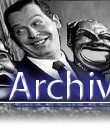 |
 |
 |
 |
 |
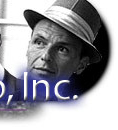 |
Click on the picture of your favorite celebrity to view more information. | |
 |
|||||||||
|
A MATCHLESS LIBRARY TELEVISION ARCHIVE |
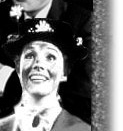 |
|
 |
|
 |
|
 |
|
 |
|
 |
|
 |
|
 |
|
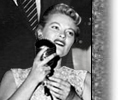 |
|
 |
|
 |
|
 |
|
 |
|
 |
|
 |
|
 |
|
 |
|
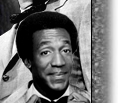 |
|
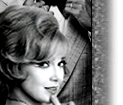 |
|
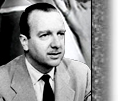 |
|
 |
|
 |
|
 |
|
 |
|
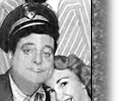 |
|
 |
|
 |
|
 |
|
 |
|
 |
|
 |
|
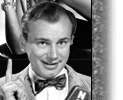 |
|
 |
|
 |
|
 |
|
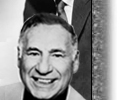 |
|
 |
|
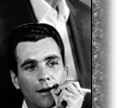 |
|
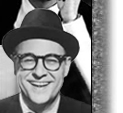 |
|
 |
|
 |
|
 |
|
 |
|
 |
|
 |
|
 |
|
 |
|
 |
|
 |
|
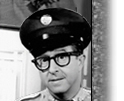 |
|
 |
|
 |
|
 |
|
 |
|
 |
|
 |
|
 |
|
 |
|
 |
|
 |
|
 |
|
 |
|
 |
|
 |
|
 |
|
 |
|
 |
|
 |
|
 |
|
 |
|
 |
|
 |
|
 |
|
 |
|
 |
|
 |
|
 |
|
 |
|
 |
|
 |
|
 |
|
 |
|
 |
|
 |
|
 |
|
 |
|
 |
|
 |
|
 |
|
 |
|
 |
|
 |
|
 |
|
 |
|
 |
|
 |
|
 |
|
 |
|
 |
|
 |
|
 |
|
 |
|
 |
|
 |
|
 |
|
 |
|
 |
|
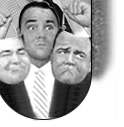 |
|

Copyrights
|
Thousands of Public Domain
and non-copyrighted broadcasts no longer exist in kinescope or
video or in any other visual broadcast format. Thousands of "lost" original
television broadcasts are represented in our archive, but survive as audio only.
Performance and music clearances may be necessary if material is to be reused. Rights status to some material is unknown. "Fair use" statutes allow for certain copyrighted program excerpts to be reused. This archive holds no rights to any material, and provides only physical, tangible copies of television audio soundtracks, originally recorded off the air in the 1950s, 1960s, 1970s, for personal use, by Archival Television Audio, and by other original sources. No rights are given or implied when material is transacted to purchaser. Commercial users must assume full responsibility for securing any necessary clearances, if needed, or required authorization for whatever use they may make of the material. On January 1, 2003, tens of thousands of 1948-1977 "common law" unpublished TV programs, until now protected by the 1909-1977 copyright act, reverted to public domain status if they were not retroactively copyrighted between January 1, 1978 and December 31, 2002. When copyright law was updated in 1976, Congress merged all copyright principles into a unitary federal system. In the process, it eliminated the notion of "common law copyright." Prior to this reform, if a work was unpublished, it could remain the exclusive property of its owner and his or her heirs forever. The critical dividing point was publication. When a worked was sold, loaned, licensed, or given away, the law deemed the work published and subject to all the formalities of federal law. An entire body of copyright law interpreting the instance of "publication" evolved because the dividing point between published and unpublished works had dramatic legal consequences. One important copyright rule is that "performance" is not defined as publication because no copy changes hands. Hence, live concerts are not publication of a musical score. By analogy, when broadcasting began to impact copyright law, it was ruled that a telecast was not a publication of work. If copies were sold or given away, that would constitute a copyright publication. But the mere airing of a program on radio or television did not constitute publication. Thus, all the old network radio shows, which were broadcast live in many cases, with recordings made simultaneously, did not constitute published copyrighted works. This means that a body of work for which copyright registration was not secured remained under common law copyright protection. Only if tapes of the shows were distributed would the program cross the copyright divide. At that point (but prior to 1978), failure to follow the formalities created the potential that the work could fall into the public domain. Complying with the formalities meant that the owner was entitled to claim the benefits of federal copyright for the work during the years it was protected. While elimination of formalities has diminished the legal significance of publication, the concept still has important consequences. First of all, when the law was reformed in 1976, common law copyrights were given a federal term of protection. Even though they may have been created a century or more before, the term of copyright protection for unpublished works was extended at least to the year 2002. If they were published between 1978 and 2002, the term would last until 2027. If not, they would lapse into public domain status forever. It is interesting to note that before 1972 sound recordings were not protected by copyright law, but only by ambiguous and muddled state laws. The Feb. 15, 1972 copyright act, and the extended 1998 Bono copyright extension act, solidified, and clarified sound recording copyright protection. THE TELEVISION ARCHIVE AT THE LIBRARY OF CONGRESS THE TELEVISION AUDIO ARCHIVE AT ARCHIVAL TELEVISION AUDIO The Library of Congress, in Washington DC, started receiving, collecting & preserving television material in 1949. During the first decades of television broadcasting the Library of Congress offered a broad but uneven view of television's programming. The reason why so few, or no, episodes exist of the 50 million hours of programming and commercials (1947-1968) broadcast during that span of time, is because many producers of early television did not seek to register their programs, seeing little long-term commercial value for their product, or deciding that cumulative costs of registering whole series were too high. And the owners who did wish to obtain copyright protection for early television transmissions encountered the legal concepts of "fixation" and "publication." As had been previously established with film, performances by broadcasting did not per se constitute publication. Publication came at a later point, when the material had been fixed and offered for sale, lease or rental. If such was not the case then those other broadcasts not sold, leased or rented maintained the status of not being published, not being copyrighted. Since the power of the Library of Congress, to compel copyright holders to deposit copies, extended only to "published" works the mandatory deposit features of U.S. copyright law were shown to be inadequate to the task of assuming the orderly development of a comprehensive TV archive." Legal precedent had made it clear that a network broadcast did not constitute publication. And, most programs such as talk shows, sporting events, news, and variety and game shows were only aired once, never kinescoped, or after October 1956, never video-taped, and thus never syndicated at all. Because the Library of Congress depended heavily on copyright deposits, through voluntary registration for its television acquisitions, the result of this legal morass was that the collection grew unevenly. So, a complex mix of copyright-related issues, interacting with other factors, account in large part for the dearth of early television in the Library. During the 1950s, and 1960s there was an attitude held by the Library of Congress acquisitions officers toward television programming which paralleled that of the scholarly community in general. The Library simply UNDERESTIMATED THE SOCIAL AND HISTORICAL SIGNIFICANCE OF THE FULL RANGE OF TELEVISION PROGRAMMING. There was no appreciation of TELEVISION'S FUTURE RESEARCH VALUE. Archiving television's programming was an arcane pursuit. And, that is why the Archival Television Audio, Inc. collection, containing thousands of "lost" TV broadcast soundtracks, is so significant. These tracks, in the archive, exist as the only broadcast record, representing a specific lost television program. BEFORE THE MID-1960's, FEW TV PROGRAMS WERE ACQUIRED FOR THE Library's COLLECTIONS. FEW TELEVISION PROGRAMS WERE COPYRIGHTED. Of television shows registered for copyright during these years, the Library chose only an occasional sample. The library never purchased or solicited television programs not available through copyright. Thus, broadcasts literally disappeared after their one and only airing or repeat airing. Only surviving 1/4" reel to reel TV Audio Airchecks have kept the essence of those lost broadcasts alive. By December 1979 the Library of Congress had acquired only 14,000 copyrighted programs, less than the inventory of programs currently existing as TV soundtracks in the collection of Archival Television Audio, Inc. Our archive contains thousands of original TV audio aircheck broadcasts which are one-of-a-kind, not existing anywhere else including The Library of Congress. |
Top
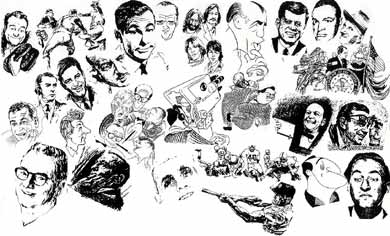
To search for a broadcast, please e nter a
Show Title, Personality, Airdate, Archive ID, Keyword or Phrase into the Search textboxes at the top of the page:
PRESERVING & ARCHIVING THE SOUND OF
LOST & UNOBTAINABLE ORIGINAL TV
(1946 - 1982)
"Preserving & disseminating important TV Audio
Air Checks, the video considered otherwise lost."
-Library of Congress
Vintage Television Audio Broadcasts
22,000 Titles - 20,000 Hours
Home | About us | Order Inquiry | TV Categories | Personality Index | Title Index
Archival Television Audio, Inc.
www.atvaudio.com
209 Sea Cliff Avenue
Sea Cliff, New York 11579
Attention: Phil Gries
|
Founder & Owner Phil Gries Director of Photography www.philgries.com |
"Any Inquiries"
Phone/Fax: (516) 656-5677
Email Us: gries@atvaudio.com
© 2002-2024 Collector's Choice Archival Television Audio, Inc.
All Rights Reserved.

Unique Visitors:
Visitor Counter
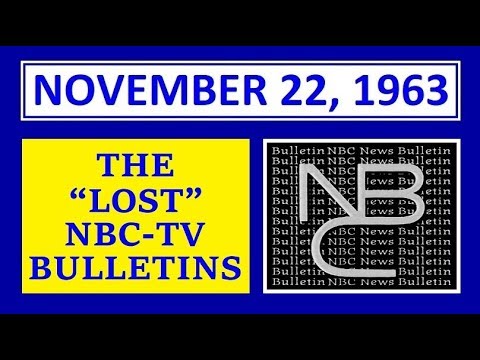
UNIQUE in the WORLD audio air check recordings by 20-year-old Phil Gries, archiving the first, second bulletins & initial NBC TV broadcast coverage of President John F. Kennedy's assassination. Not recorded by NBC or any other resource in the country.
- A&E TV SPECIAL - host Edwin Newman (11-22-1988) introduction - 25th Anniversary of JFK Assassination.
- NBC TV "Lost Don Pardo Bulletins" & Lost first 3:53 TV coverage (Phil Gries unique broadcast audio recording) unable to be video tape recorded or audio tape recorded by NBC.
- Phil Gries telephone interview with Don Pardo (5-14-1998).
- 10 minutes.
LIVE with PHIL GRIES
ARCHIVAL TELEVISION AUDIO - WEBINAR
Each Friday Evening from 7:30 - 8:30PM EST.
 RETRIEVABLE LOST MEMORIES
RETRIEVABLE LOST MEMORIESORDER
Vintage Television Audio Broadcasts
22,000 Titles
20,000 Hours
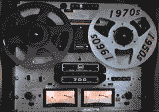
Testimonials
The Senior Moments Radio Broadcast show interviews Phil Gries about his Archival Television Audio archive and his restored documentary film, "Harlem School 1970"

Glen Cove Senior Center
January 23, 2018
 Phil Gries' recordings
Phil Gries' recordingsof vintage sounds
never grow old.

Hear Phil Gries on

Hear Phil Gries
and Joe Franklin
on Bloomberg Radio
(April 28, 2012)

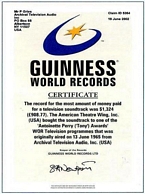
Home
Contact Us
ORDER INQUIRY
Hear Phil Gries on
National Public Radio
Archive Profile

ALL THINGS CONSIDERED
"Raising Ali"
(May 22, 2015)
Hear Phil Gries
on Sports Talk:
August 25, 2019
June 26, 2016
August 9, 2015




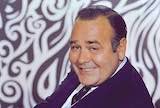
 Archive
ArchiveSearch Library
TV Categories
Personality Index
Title Index
ARSC Journal Article Publication: Lost TV Programs (1946-1972)

Hear Phil Gries presentations at ARSC (Association for Recorded Sound Collections) 2001, 2008, 2009, 2010, 2011, 2014.
Audio Samples

(Audio files may take 20 seconds or more to load)
1960's TV
Audio Player
103 Broadcast Samplers
AudioAndText™
Content
(Browser needs to
allow Flash content)
Content Collections
JFK Assassination
Coverage
NPR Walter Cronkite Essays
Civil Rights Movement (1956-1968)
Space Exploration (1956-1972)
Vietnam War
(1961-1975)
[854 Entries]
Company Information
About Us
Descriptions
Access
Fees
Archive
TIME-LINE
Accreditation
Master Materials
Research
Copyrights
Restricted Archive Titles
Catalogs
Related Materials
TV History
Lost Television
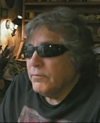
Jose Feliciano, at 70, listening to his FIRST TV variety show appearance (Al Hirt: FANFARE), telecast on July 17, 1965, when he was 19 years old.
TV Audio:
Rare & Valued
When TV Variety
Was King
This Anniversary Day
In Television History
ARSC/IASA London Conference: Why Collect?

News 12 Long Island
Live Television Profile:
Archival Television Audio, Inc
CAPTURED LIVE: CULTURES OF TELEVISION RECORDING AND STORAGE, 1945-1975

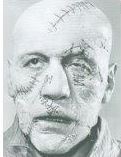
NBC MATINEE THEATER
FRANKENSTEIN
NBC TV - Feb. 5, 1957
8:23 min. excerpt
Phil Gries TV Audio Archive
Profile Segment
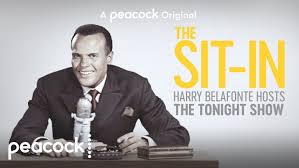
Harry Belafonte Hosts
The Tonight Show
5:21 min. excerpt
Password: Phil
(Case Sensitive)